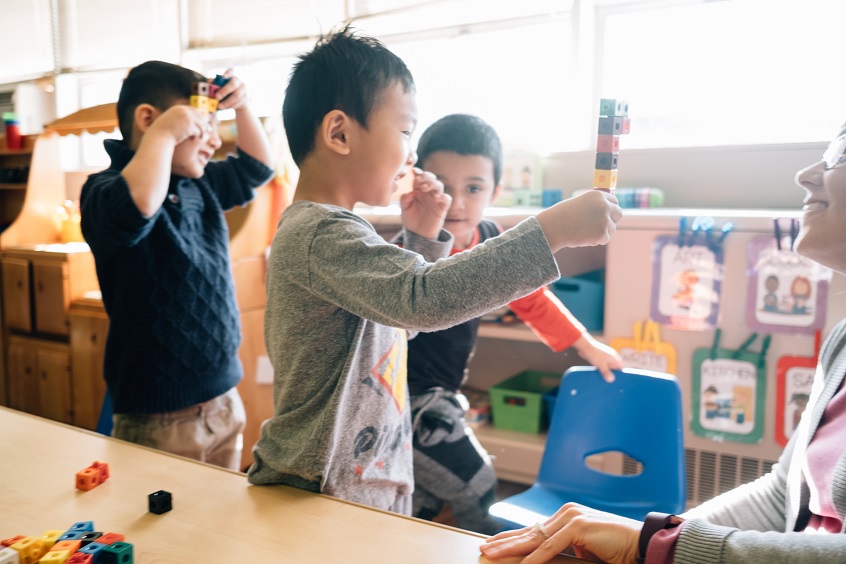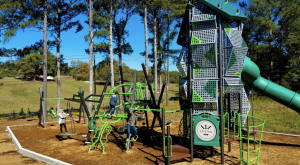How Childcare Professionals Support Emotional and Social Growth

Childcare experts contribute significantly to shaping children’s growth during their developmental stages by creating a supportive atmosphere that helps children acquire vital skills and knowledge for successful advancement.
Creating a Safe Environment
Establishing a nurturing setting is essential for fostering growth in children’s lives. Children are encouraged to express their emotions in welcoming environments created by caregivers. This sense of safety nurtures curiosity and promotes exploration as an aspect of the educational journey. Experts offering services related to childcare in Melbourne meticulously craft corners and stimulate play areas in classrooms to encourage social interactions among young children.
Cultivating Emotional Intelligence
Emotional intelligence involves understanding and managing your emotions while also being aware of how others feel around you. Parents and teachers use methods to help kids develop these skills. By participating in tasks such as storytelling and playing make-believe games with children, they learn to identify and communicate their feelings well.
Encouraging Social Interaction
Good communication and teamwork rely heavily on abilities. Children’s caregivers provide opportunities for kids to engage with each other, form friendships, and cooperate through group tasks such as playing with blocks or collaborating in games. These experiences help children learn about the importance of sharing, caring for others, and treating each other with respect.
Exploring Positive Conduct
Children learn by observing those around them as they mature, and caretakers demonstrate the importance of kindness and patience through their actions to serve as role models for the youngsters to emulate. Teaching problem-solving abilities and effective communication during situations can equip kids with the tools needed to navigate challenges effectively.
Incorporating Play-Based Learning
Playing is part of helping kids grow socially in places like daycares that use play-focused teaching methods to help children explore their emotions and relationships. Encouraging play sparks imagination and fosters creativity in children, while structured activities teach them skills.
Promoting Self-Expression
Emotional well-being thrives when individuals can freely express themselves authentically. Children’s caregivers play a role in nurturing self-expression by inspiring creativity through art, music, and storytelling. These creative pursuits provide children with opportunities to communicate their emotions and thoughts, promoting self-awareness and confidence. By nurturing self-expression, caregivers help children develop a sense of identity and self-worth.
Building Trusting Relationships
Building trust plays a role in strengthening relationships based on support and connection. Children’s caregivers build bonds with kids by being for them and appreciating the natural world around them. Active listening and giving attention contribute to creating a sense of belonging and security for children. Trustworthy connections provide the confidence needed to navigate life’s challenges while having a support system in place.
Providing Guidance and Support
Assistance and direction are crucial in fostering development in people of every age group, especially young ones who are in the key phase of growth and discovery of their surroundings. Children receive help from caregivers who provide guidance and encouragement to assist them in handling situations and managing conflicts.
Engaging Families in the Process
When families are involved in childcare services, providers collaborate to build a community for children by connecting with parents. Caregivers develop a shared understanding of a child’s growth and needs. Involving families in activities and learning sessions strengthens the connection between home and childcare facilities, creating a cohesive support network.
Addressing Diverse Needs
Children come from varying backgrounds with different needs and preferences that childcare providers adapt to ensure each child receives the support necessary for their development journey. Recognising and celebrating diversity in children’s backgrounds and experiences allows caregivers to create environments where children feel respected and understood. This inclusive approach fosters a sense of belonging and acceptance among children.
Encouraging Lifelong Learning
Childcare professionals have an impact that extends beyond early childhood education. They set the foundation for a path of learning and development by encouraging children’s passion for knowledge and inquisitiveness through engaging activities and stimulating environments.
Conclusion
Childcare experts play a part in nurturing the social development of young people by establishing caring settings and demonstrating positive actions while involving families in the process to set the stage for a child’s future achievements through their commitment and knowledge. It is through these caregivers’ efforts that they influence the forthcoming generation to help children evolve into self-assured individuals who are compassionate and able to overcome challenges.




